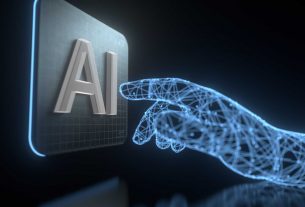The man often touted as the godfather of AI has quit Google, citing concerns over the flood of fake information, videos and photos online and the possibility for AI to upend the job market.
Dr Geoffrey Hinton, who with two of his students at the University of Toronto built a neural net in 2012, quit Google this week, the New York Times reported.
Hinton, 75, said he quit to speak freely about the dangers of AI, and in part regrets his contribution to the field. He was brought on by Google a decade ago to help develop the company’s AI technology.
Hinton’s research led the way for current systems like ChatGPT.
He told the New York Times that until last year he believed Google had been a “proper steward” of the technology, but that changed once Microsoft started incorporating a chatbot into its Bing search engine, and the company began becoming concerns about the risk to its search business.
Some of the dangers of AI chatbots were “quite scary”, he told the BBC, warning they could become more intelligent than humans and could be exploited by “bad actors”.
“I’ve come to the conclusion that the kind of intelligence we’re developing is very different from the intelligence we have.”
“So it’s as if you had 10,000 people and whenever one person learned something, everybody automatically knew it. And that’s how these chatbots can know so much more than any one person.”
Hinton’s concern in the short term is something that has already become a reality – people will not be able to discern what is true any more with AI-generated photos, videos and text flooding the internet.
The recent upgrades to image generators such as Midjourney mean people can now produce photo-realistic images – one such image of Pope Frances in a Balenciaga puffer coat went viral in March.
Hinton was also concerned that AI will eventually replace jobs like paralegals, personal assistants and other “drudge work”, and potentially more in the future.
Google’s chief scientist, Jeff Dean said in a statement that Google appreciated Hinton’s contributions to the company over the past decade.
“I’ve deeply enjoyed our many conversations over the years. I’ll miss him, and I wish him well!
“As one of the first companies to publish AI Principles, we remain committed to a responsible approach to AI. We’re continually learning to understand emerging risks while also innovating boldly.”
It came as IBM CEO Arvind Krishna told Bloomberg that up to 30% of the company’s back-office roles could be replaced by AI and automation within five years.
Krishna said hiring in areas such as human resources will be slowed or suspended, and could result in around 7,800 roles being replaced. IBM has a total global workforce of 260,000.
The Guardian has sought comment from IBM.
Last month, the Guardian was able to bypass a voice authentication system used by Services Australia using an online AI voice synthesiser, throwing into question the viability of voice biometrics for authentication.
Toby Walsh, the chief scientist at the University of New South Wales’ AI Institute, said people should be questioning any online media they see now.
“When it comes to any digital data you see – audio or video – you have to entertain the idea that someone has spoofed it.”
This content was originally published here.





